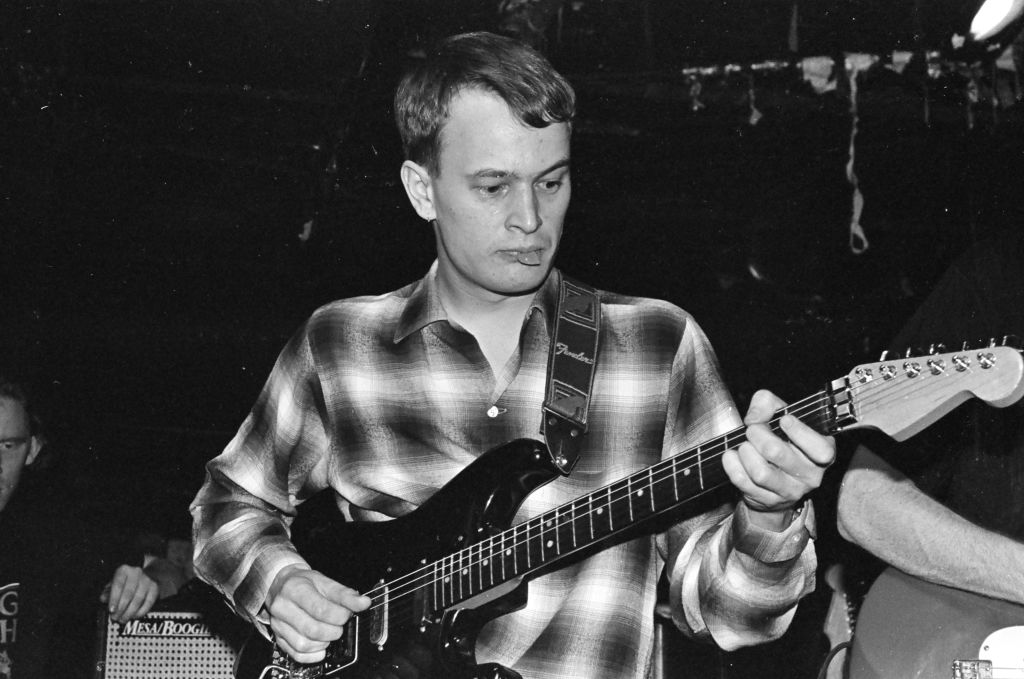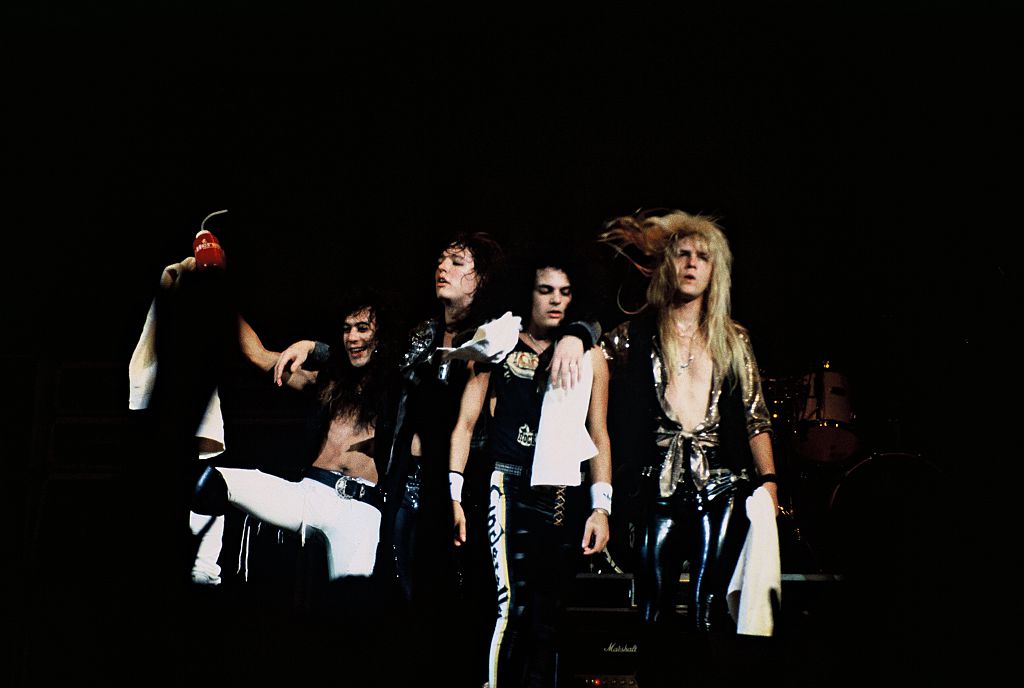In the 1980s, David Lowery co-founded and fronted the alternative band Camper Van Beethoven and composed its best-known song, “Take the Skinheads Bowling.” In the ‘90s, he founded and fronted the nearly mainstream Cracker and co-wrote that band’s alternative smash “Low.” Robert Christgau once called him a “major wiseass.”
But in conversation, Lowery comes off more like the 64-year-old, 20-years-sober, rocker-turned-university-music-business-professor (at the University of Georgia’s Terry College of Business) and longtime, legally savvy musician-rights advocate that he is.
More from Spin:
- Jeff Tweedy Triples Up On New LP, ‘Twilight Override’
- Will You Also Be Seduced By the Beta Band’s “Dry the Rain?”
- Korean Brit Pop
Recently, he has overseen the deliberately semi-definitive two-CD (or three-LP) 24-song anthology Alternative History: A Cracker Retrospective (Cooking Vinyl), for which he and the band went on a 14-date tour. In 2025, he’ll oversee a similar compilation drawn from the solo catalog he has been amassing on Bandcamp since 2020. If to call him a “Renaissance man” is an exaggeration, it’s not a huge one.

SPIN: Does Alternative History represent a final word or wiping the slate as preparation for something new?
Well, it’s definitely not a “final word,” but financially it is pretty challenging to make a new Cracker album.
Why?
It’s not like we can make a laptop record. Cracker needs to go into a studio. So it’s kind of an expensive proposition. I would hope that we make another record. But the current monetization of music doesn’t match the way we work.
“Ain’t Gonna Suck Itself,” is Alternative History’s final track. I read you didn’t complete it until Virgin rejected your Countrysides album.
I had the music, yeah. But I don’t think the song would’ve been called “Ain’t Gonna Suck Itself.”
It’s like the “My Ding-a-Ling” of Cracker’s oeuvre.
It’s actually kind of the reverse of that. The double part of the entendre is buried rather than being forward. You’re like “Oh, wow! What’s this song?” And then you listen to it, and it’s like this whole story is about giving somebody a popsicle that’s from the record company (laughs). Anyway, it’s in the tradition of a kiss-off song to a record label, so it requires a certain amount of vulgarity.
Part of Alternative History is to provide a history of the band that goes counter to how most people listen. Most people, if they find Cracker, are just going to go down the rabbit hole of an algorithmic playlist, which is going to be weighted towards the old stuff. So this was sort of a counter-algorithm project.
“Almond Grove” you’ve said is the song you’re proudest of having written.
Yeah, I think it tells a story well. It’s kind of a tear jerker. I also think everybody’s parts are damn near perfect, everything from Thayer Sarrano’s backing vocals to the Johnny [Hickman] guitar lick to the weeping pedal-steel solo — when it goes to the B section in the solo — everything’s almost perfect. And it’s very minimalist in a way. Nobody plays more than they need to.
At the opposite end of the spectrum is “Gimme One More Chance,” which confirms the theory that there has never been a bad rock ‘n roll song whose title begins with “Gimme.”
(Laughs) You know what’s funny about that song? For the original version that’s on Greenland, we had David Immerglück from the Counting Crows, who also played with Camper Van Beethoven, playing some pedal steel and bass. And he’d just found these cassettes of himself when he was like 14 or 15, learning to play guitar. These were guitar riffs. So he’s playing them as a joke and laughing. But we were like “That’s really good!” So the riff to “Gimme One More Chance” is literally a riff from the mid-’70s that resurfaced.
What’s the compilation of your Bandcamp solo albums?
It’s called Fathers Sons & Brothers, and we’re shooting for May. It’s going to come out the same way that Alternative History did: a three-LP, two-CD set, and it’s going to go up on streaming services. It’s 28 tracks. And some of the stuff is re-recorded and fleshed out with a full band.
The most recent of those albums is 2023’s Vending Machine, the title track of which begins with you “passed out underneath the desk of the publisher of SPIN magazine.”
That’s right. We went to some SPIN after-party on the [2005] Modest Mouse/Camper Van Beethoven tour, which was pretty drunken and debauched, a lot of drugs, stuff like that. I remember it being like four or five in the morning and the band guys getting me. They were like “We couldn’t find you!” I had gone in the office of SPIN magazine’s publisher and gone to sleep under the desk.
In the rest of the song, you describe immersing yourself in what sounds like Alcoholics Anonymous.
I was like “All right. I have kids. I really don’t want to be this guy and live that way anymore.” So I go to the AA meeting that’s behind my studio in Richmond. It’s like “How do I get started?” And the first thing — it’s largely a black AA meeting, which I didn’t realize, but nobody seemed to care — and they were like “Well, do you believe in God?” And I was like “I don’t know.” And they go “OK.O.K. Well, your higher power is the vending machine then. You’re going to pray to the vending machine. You’re going to ask all these things from the vending machine.” What I didn’t realize was that this was a way that the old-timers would identify people privately and quietly to the other members, the other old-timers who were non-believers.
Another Vending Machine song is “Fat Little Babies.” How many of those have you and your wife brought forth?
Two, although they’re young men now. Being a father is one of the best things in my life, although it’s not without its challenges, especially when you’re raising teenage boys and on the road so much. They’re like race cars with no brakes, impulse wise. I talk about that in “The Giving Tree Father,” which is another song on Vending Machine. But, yeah, it all worked out the way it was supposed to.
Did their musical interests have any noticeable influence on you or yours on them?
Well, for young men, Green Day is some sort of a gateway drug into rock music. They went directly from Green Day into indie garage rock. My older son is into really edgy underground music that spans everything from the ’50s to now. He listens to the avant-garde shit. Recently, I found my old Captain Beefheart Trout Mask Replica. I go “You know what? You’re the one who’s going to understand this record, so I’m giving it to you.” He was like “I can’t believe you have an original vinyl copy of Trout Mask Replica!” Of course, he knew it, right?
Does your Camper Van Beethoven or Cracker status earn you any cred in your sons’ eyes?
What’s funny is I know a lot of the people that they’re listening to. And at one point, when my younger son was probably about 11, I started to tell a story about somebody that they were listening to — my personal story of interaction with them or something that we’d done together — and he cuts me off and goes “Dad! These stories that you have, these are very important stories, and I’m sure these are things that you should be proud of. But it kind of takes the magic away for us” (laughs). I was like “You fucking little hipster!” I didn’t say that to him, but you know what I mean? I was just like “God! This is what I get!”

Has being a rock star made it easier for you in the classroom?
No. Most of my students don’t know anything about the bands that I was in. And when they do know, it’s because their parents are big fans.
You say that you’re “liberal, not progressive.” What’s the difference?
I think I’m more centrist than a lot of people. Sometime over the last eight or 10 years, a lot of people I’m around — you know, the entertainment circles and academia — lost the thread on what the Democratic Party did really well, which was support a robust safety net and have free markets providing a lot of our wealth. And I also think we — the Democratic Party — made a mistake being sort of the anti-free-speech party, being so statist, and not appreciating the things that free markets have given us.
But I’m also not as political as I used to be.
What in your background prepared you to lecture on the music business?
My training was math and a little bit of computer stuff, and that kind of overlaps with science and some economics and finance. So I had some sort of chops to teach these classes, but mostly I learned a bunch of things about business, accounting, net present value, and risk-and-rewards stuff in the music business. So there was a class that came open at the University of Georgia, and I’d done a couple of guest lectures in it, and they literally needed, at a few months notice, to get a new teacher for this class. So they gave it to me, and I redesigned it. And then they kept giving me more classes, so I became a professor.
What long-term threats or benefits do you see AI posing in music and education?
When my students turn in something that they used AI for, it stands out like a sore thumb, especially if you know your students. So they don’t really get away with it with me. And I think that it’s going to harm a bunch of students who are not autodidacts and are not curious about learning about the world.
What about music?
It’s like a friend of mine said, “Every song I hear written by AI sounds like it was written by my neighbor’s golden retriever” (laughs). It’s pleasant to look at, you know? It’s kind of nice. But there’s nothing there.
To see our running list of the top 100 greatest rock stars of all time, click here.



